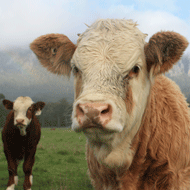Persistent bTB herds to benefit from new approach

The new approach aims to boost support for farmers working toward OTF status.
The AHVLA has announced that herds suffering long-term bovine TB (bTB) breakdowns in England and Wales will now be considered for a more tailored and hands-on management approach.
As of February 3, enhanced case management procedures became available for herd owners seeing breakdowns lasting longer than 18 months.
The move is aimed at helping farmers to regain their officially TB-free (OTF) status as quickly as possible, whilst lowering the risk of future breakdowns. This follows feedback from stakeholders that a more proactive approach was needed.
Each case will be assigned AHVLA veterinary officers, who will consider a number of factors when determining a suitable management approach.
Herds may be selected for enhanced case management based on several issues, including the length of breakdown, number of reactors and compensation costs, results of post mortem examinations and herd size and dynamics, including movement volumes.
According to the AHVLA, official veterinarians will be consulted for local knowledge and herd health problems that may be of importance. In addition, they will be invited to an on-farm meeting, for which they will receive payment.
The agency says the changes aim to boost support for farmers working toward OTF status, to identify and deal with the cause of persistent infection and to gain knowledge to improve the management of future breakdowns.
The new management approach will be assessed using farmer questionnaires, internal case review, pairing herds for epidemiological comparison and quantitative measures (particularly to determine cost savings).
For further information, view the AHVLA website.



 HMRC has invited feedback to its communications regarding the employment status of locum vets and vet nurses.
HMRC has invited feedback to its communications regarding the employment status of locum vets and vet nurses.